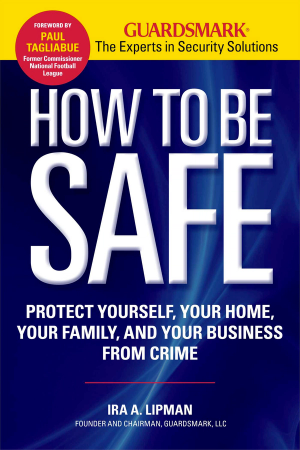Book Review
How to Be Safe
When I first picked up this book, I wondered "who is this for"? I also wondered, "Who writes this kind of book?". I can't envision people people coming to a book like this to form their shopping list of things to get at the hardware store, or to learn what kinds of dog breeds would be most suitable for home security. That said, the book does go into this, and I read it, so here's my review.
Who is this book for?
For the first question, surely most people who wish they had read this book are likely doing so after having been robbed or hurt by a criminal. My main takeaway is that the likely key reader for all this content would be a father who wants to educate himself on all the advice he should be giving his child who is moving into their own apartment or home on their own for the first time. Otherwise, if someone wants specific material, they are likely seeking it out on the internet.
Who writes a book like this?
I tried to envision the type of person who writes an all-encompassing guide like How to Be Safe. Was it a police officer? A homeland security officer? A reformed criminal? Someone who gets paid to do police training or Neighborhood Watch meetup special guest appearances? Whoever it is, I envision that person needing to somehow say, "I know what it takes to be safe - I write the book on it!", in order to add some credibility to their main hustle.
As it turns out, the author, Ira A. Lipman, is the founder and chairman of Guardsmark - a huge security company. That's a pretty good hustle.
What's in the book?
It's about as comprehensive as can be. It's like he brainstormed every possible thing related to personal and property safety, and made a section, chapter, or sentence for it in the book. Guns? Yep. Dogs? Yep. Deadbolt locks? Yep. Lighting? Yep. Giving keys to your house cleaner? Yep. Fires? Yep. Email phishing? Yes. Elder abuse? Yes. Investment fraud? Yes. Shoplifting? Yes. Serial killers? Yes.
The book has tons of practical advice. (Almost too much advice?) It seems to read like "here are several things you may not think of mixed into tons of things that are just common sense."
Some gems I appreciated that just a bit over the top
- "...a beautiful flower bed and an assortment of potted plants lets the burglar know you have taste. And taste indicates there are nice things inside your home." (This site's author feels quite safe in this regard.)
- "...your second car, parked in the same spot day after day, signals that you're away from home. Ask your neighbor to move it every day..." My neighbor will get right on that... every single day.
- "The speed of inline skates may make you feel more in control, because an assailant on foot can't keep up with your pace, but it takes only one blow to knock an unsuspecting skater off balance." I returned my skates immediately after reading that passage.
- "Ideally, you should select a hotel room on the fourth through seventh floors. Aerial ladders used by fire departments rarely reach heights higher than the seventh floor." So why not the third floor?
- "Always travel with a small roll of duct tap. It can be used to attach wet towels to air vents, seal doors from smoke, or spell HELP on a window."
- "Beware of a person who approaches you on the street and says you can buy a case of expensive liquor at a low price."
- "The ultimate con involves a person who pretends to love you but whose heart is focused on your money."
Books age, and this book is no exception
While lots of passages are timeless and still relevant, unfortunately, the book has tons of dated advice as well. It's published (or maybe 'updated') in 2012, which isn't all that old in general (the year is 2023 at the time of this review's publication), but when it comes to the speed in which technology has changed over the last decade, it really feels like it was written in a different generation. References to home phones and the use of caller ID, and bits like how to handle repeated prank calls by 'leaving the phone off the receiver for a few minutes'... I mean, unless the reader is a 50-year old man, this will just not be relevant at all.
The other thing about the age is what it doesn't mention: security apps for iPhones and Androids, and how they can integrate into the ubiquitous Ring doorbell. It just shows that books age in a way that websites don't when it comes to information like this.
So why would a reader choose a book to find out security information? The good thing about a book is that an author and editor want to ensure quality and consistent tone of voice. They also want to give as thorough a consideration as possible. So while some recent innovations may be missing with regards to technology, some good healthy habits of a safety mindset permeates throughout.
Bottom line
The book is packed with just so much common sense security advice, as well as some over-the-top recommendations, that I envision the author to be extremely paranoid and doesn't enjoy life. As enjoying life will make potential criminals thinking you have valuables inside your home to steal. Consider this a reference book, not a beach reader.
A lot of this is 'street smart' kind of common-sense. So if you're the kind of person that's been told "You seem book smart, but you are not at all street smart", then maybe this book is for you. Otherwise, avoid!
